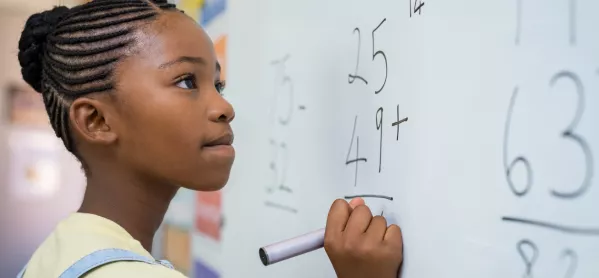It is imperative when schools partially reopen on 1 June that we do not aim for an immediate “return to normal” but a transition that enables our children to feel a sense of safety, security and belonging.
Our children have been through a challenging and disruptive period and we need to consider their emotional needs if we are to get the best out of their learning.
The biggest challenge we will have is that the extent to which we can provide consistent structures will be limited, so the focus in schools must be on the extent to which we provide a consistent culture for our children’s learning behaviours.
Below I detail four ways in which we can begin to enable our children to reconnect with the wider school community, even during this unchartered and disparate time.
Coronavirus: Prioritising wellbeing when schools reopen
1. Focus on children’s personal, social and emotional development
The greatest single factor that impacts on a child’s learning and development is their self-esteem and self-perception as learners, particularly in school.
I define self-esteem as the difference between their perceived self and their ideal self. Often in environments where children are constantly ranked or compared with each other, many children will develop low self-esteem as learners.
Therefore, when your children return, consider the extent to which the curriculum you provide has a focus at its centre on children’s personal, social and emotional development.
Make sure you take time to reconnect with your children and understand how they are feeling, and this will include external factors that may be impacting upon them.
By engaging with children at a social and emotional level, the transition to effective learning behaviours will be smoother.
2. Ensure there is an effective balance between pupil talk and teacher talk
Make sure the focus in your classroom and wider school community is balanced in favour of children’s talk. Ensure that every child has a voice in your classroom and encourage them to listen to and learn from each other.
Collaboration is key and encourage your children to debate and critique the thinking and learning of others. You want to ensure that your children are enabled and empowered to share their thoughts, opinions, learning, concerns and fears with each other.
3. Model learning behaviours for your children
As the lead learner in the classroom, you are modelling the values and expectations of behaviour for others. If you demonstrate curiosity or compassion, for example, you are modelling these qualities for your learners.
Children will come to value the things that their teachers value. If you value tolerance, patience, the importance of listening to each other, your students will, in turn, learn to value them.
We cannot expect children to learn and behave in a positive way if they do not see that reflected in the behaviour and learning of all the adults in the school.
4. Encourage learning from mistakes
I believe that behaviour is learned in the same way that we can learn any other subjects - for example, English or maths. We should be encouraged to learn from our mistakes. Negative behaviour should be used as a learning opportunity. Any sanctions for negative behaviour should equally provide opportunities for children to consider, reflect upon and learn in order to improve behaviour.
Children should have confidence in being able to discuss their feelings and behaviour with adults and know that they will be encouraged and supported to improve.
Kulvarn Atwal is executive headteacher of two large primary schools in the London Borough of Redbridge. His first book, The Thinking School: Developing a dynamic learning community, is out now. He tweets @Thinkingschool2





